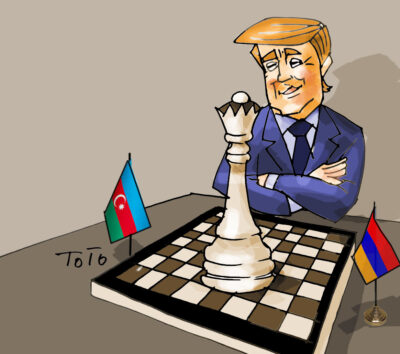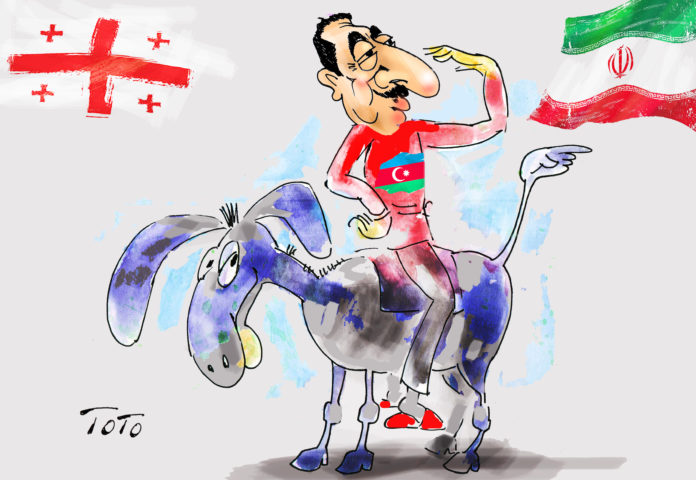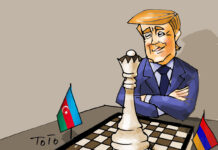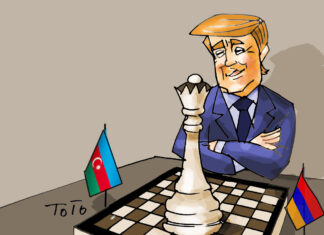The news that Azerbaijan’s President Ilham Aliyev is suffering from poor health and has not made a public appearance in the last two weeks does not bother that country’s citizens too much, because their government apparatus is on auto-pilot; it is teleguided from Ankara, following the policies of its Big Brother.
Indeed, Ankara, particularly during the era of President Recep Tayyip Erdogan, has set its sights on its neighbors’ territories. After occupying 38 percent of Cyprus, Turkey has been involved in a landgrab rampage in Iraq and Syria.
Similarly, Azerbaijan, after occupying the historic Armenian territory of Nakhijevan, has targeted Artsakh and very recently, some areas in Georgia. The second Azeri president, Abulfaz Elchibay, had set his sights on gobbling up northern Iran (the Iranian province of Azerbaijan); that dream remains alive and well and currently is at the center of some strategic plans by the US and Israel.
Turkey and Iran have been perennial competitors and enemies in the Caucasus and that latent antagonism is still extant.
Today, Turkey’s ambitions in the Caucasus are perfectly in step with its status as a NATO member. The recent military buildup in Nakhijevan expands NATO’s power right to Iran’s borders. In essence, the militarization of Nakhijevan has also coincided with US plans to contain Russian influence in the region.
It may sound odd that Russia and Turkey have political harmony on Syrian territory and yet they are at odds in the Caucasus. This is the paradigm of the post-Cold War political fragmentations; while the Soviet Union was a superpower, political divisions in the world had an ideological tilt. Following the collapse of the Soviet Empire, the major powers have been micro-managing their regional strategies. Even the US has subscribed to Turkey’s policy of listing the Kurdistan Workers’ Party (PKK) as a terrorist organization, all the while supporting the same Kurdish allies on Syrian territory, to Ankara’s chagrin.








